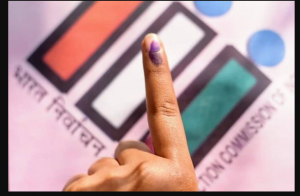Proof To Vote

Months ahead of the Assembly polls in Bihar, the Election Commission of India (ECI) on 28 June launched a ‘special intensive revision’ of electoral rolls in the state, a move that critics argue undermines the core principles of democracy, especially, universal adult franchise as guaranteed in India. This initiative requires nearly 2.93 crore voters to provide documentary proof of their birth and parental origins. Likening the exercise to a covert implementation of the National Register of Citizens (NRC), Opposition parties have warned that this extensive and complex verification process could potentially lead to mass disenfranchisement.
Bihar has approximately 7.89 crore voters, of whom 4.96 crore are already on the electoral rolls as of 2003. For these voters, the process is straightforward: they only need to verify their names and submit a form. However, for the remaining 2.93 crore individuals, the procedure is far from simple. The exercise requires that any voter whose name was not included in the electoral rolls during the last revision in 2003 must now provide valid proof of their own birth details, as well as those of their parents, including their place of origin. This revision places the entire burden of proof on the individual voter, marking a significant departure from previous practices. Placing the onus of eligibility on the voter, without providing access to necessary documents, legal support, or information, transforms a fundamental right into a challenging obstacle course.
Under the exercise, voters born before 1 July, 1987 are required to present documents that verify their date and place of birth. Those born between 1 July, 1987, and 2 December, 2004 must provide similar documentation, along with proof of identity for one parent. And, for individuals born after 2 December, 2004, documentation for both parents is necessary. In a nation where official records can be difficult to access or may be incomplete—especially for rural, low-income, and migrant communities—these requirements could deprive many of their voting rights.
Calling the exercise a Constitutional obligation, the ECI has said it is carrying out the intensive review of electoral rolls to weed out foreign illegal migrants by checking their place of birth and ensure that only Indian nationals are included. The move, which would be later expanded to other states like Assam, Kerala, Puducherry, Tamil Nadu and West Bengal where elections are scheduled in 2026, assumes significance in the wake of a crackdown in various states on illegal foreign migrants, especially those from Bangladesh and Myanmar.
Opposition parties have charged the ruling BJP and the ECI with trying to manipulate electoral results under the guise of administrative efficiency. They condemned this initiative as a Nazi-like effort to trace ancestry and infringe on people’s democratic rights. Voicing its concern over the voter list revision, the Congress has cautioned against “deliberate exclusion” of people belonging to Muslim and Dalit communities from the voter list through misuse of government machinery.
Nevertheless, the ECI, which of late is being perceived by some as being subservient to the government in power, has to come out clean on this exercise. Otherwise, erosion of people’s faith in a Constitutional body could spell doom for India’s democracy.
News